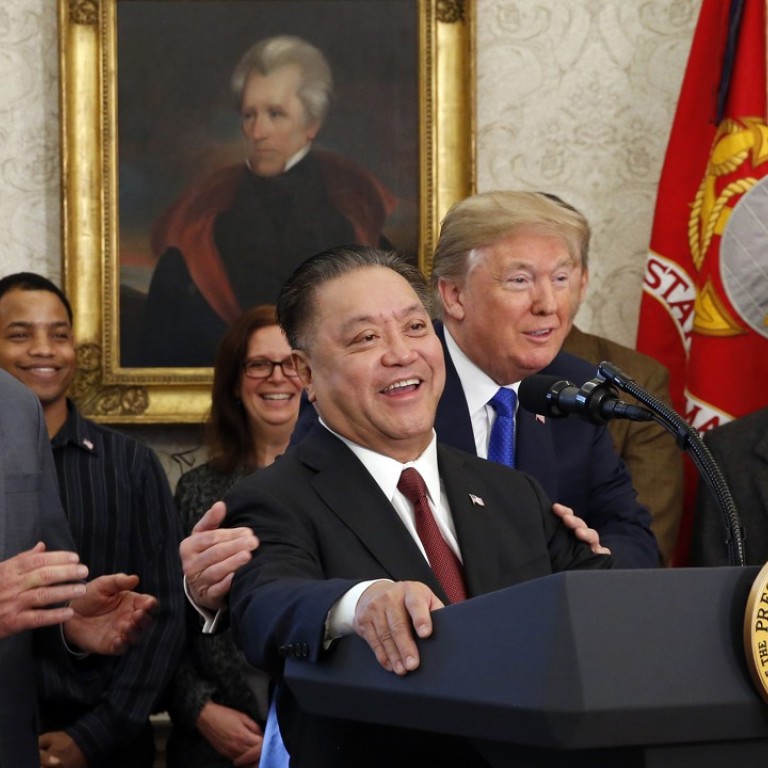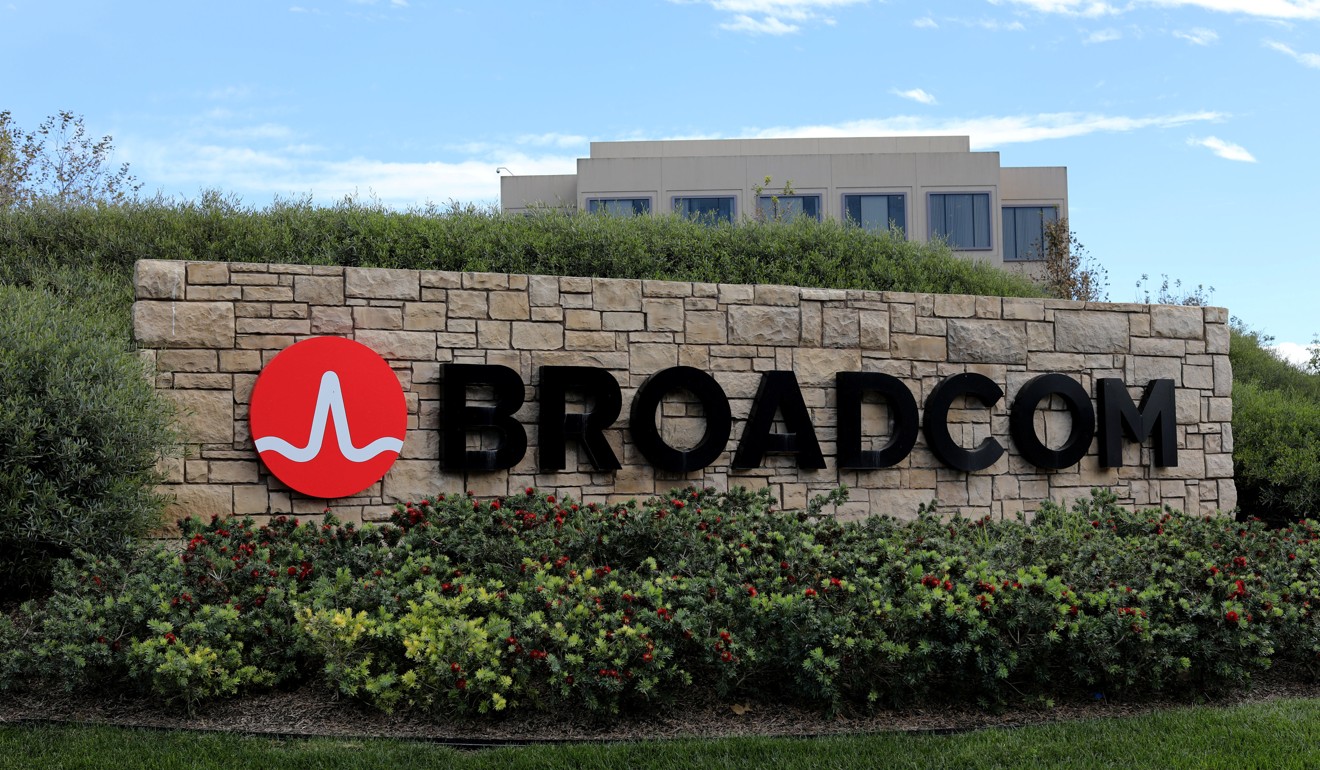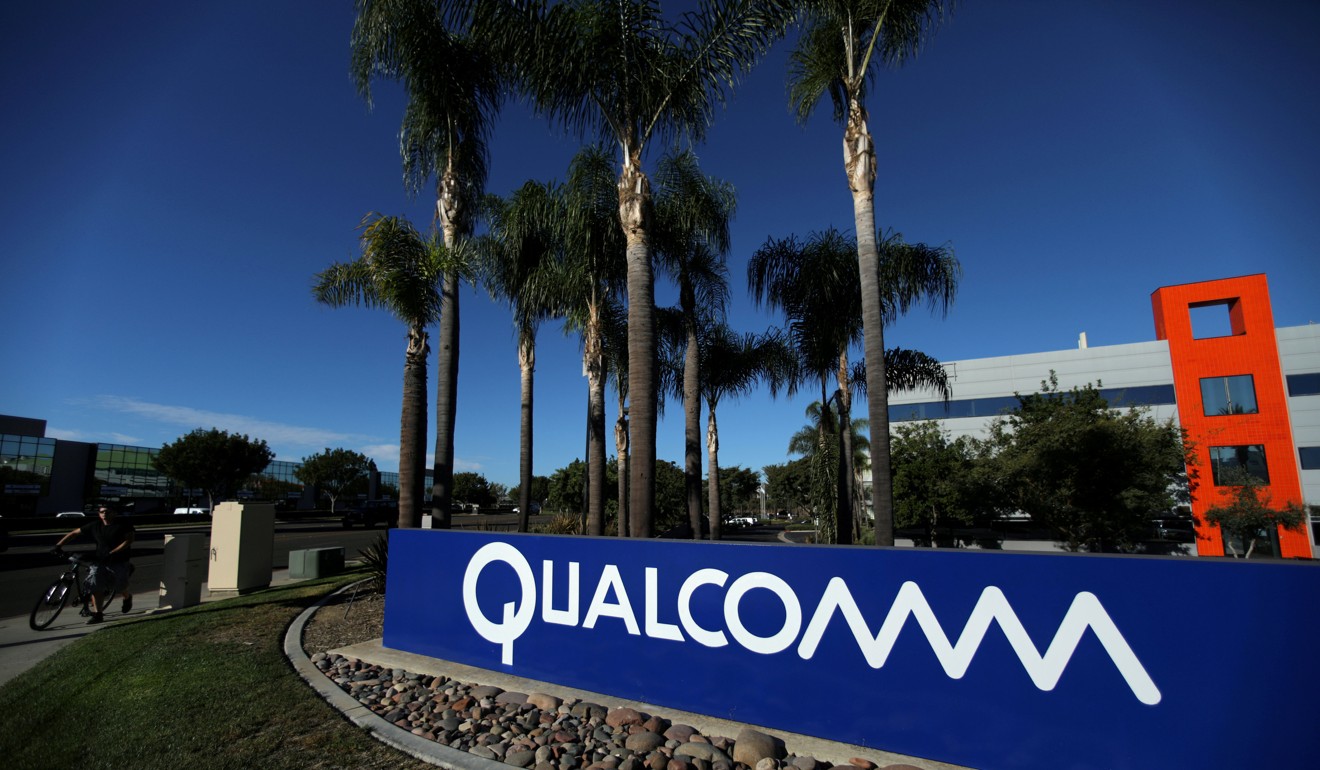
Trump kills US$117 billion takeover of Qualcomm by Singapore’s Broadcom, citing national security threat
Trump had hailed chipmaker Broadcom’s recent decision to relocate to the US, but its bid for 5G wireless tech firm had also stoked China fears
President Donald Trump issued an executive order on Monday blocking Singapore’s Broadcom Ltd from acquiring Qualcomm Inc, scuttling a US$117 billion deal that had been subject to US government scrutiny on national security grounds.

There is credible evidence that leads me to believe that Broadcom Ltd … might take action that threatens to impair the national security of the United States
“There is credible evidence that leads me to believe that Broadcom Ltd” by acquiring Qualcomm “might take action that threatens to impair the national security of the United States,” Trump said in the order released Monday evening in Washington.
Trump’s order came after an investigation by CFIUS, which had said that Broadcom’s acquisition would undermine Qualcomm’s leadership in 5G wireless technology, opening the door for China’s Huawei Technologies Co to become dominant.
In November, Trump announced and applauded Broadcom’s decision to move its headquarters to the United States, calling the company “one of the really great, great companies.” He has not spoken about the matter recently.

Broadcom, incorporated in Singapore and co-headquartered there and in San Jose, California, denied this.
“Given Broadcom’s public disclosures about the redomiciliation process since last November, as well as its direct communications to CFIUS, Broadcom has been fully transparent with CFIUS about the redomiciliation process, and believes it is in full compliance with the March 4 interim order,” the company said in a statement.
The Treasury Department letter was “obviously a poison pill,” said Jim Lewis, a CFIUS expert at the Centre for Strategic and International Studies, who described the communication to Broadcom as “unprecedented.”
Broadcom said on Monday it intended to complete the process of becoming a US corporation by April 3, before any deal with Qualcomm would be agreed.
Additional reporting by Reuters

